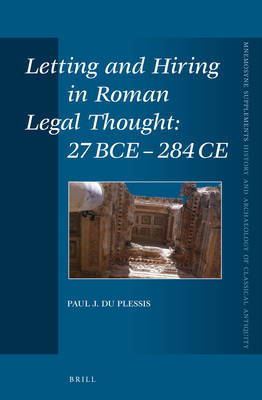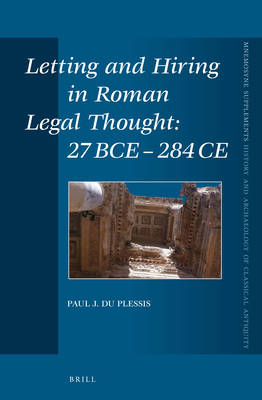
- Afhalen na 1 uur in een winkel met voorraad
- Gratis thuislevering in België vanaf € 30
- Ruim aanbod met 7 miljoen producten
- Afhalen na 1 uur in een winkel met voorraad
- Gratis thuislevering in België vanaf € 30
- Ruim aanbod met 7 miljoen producten
Zoeken
Omschrijving
Commerce in the Roman Empire of the first three centuries CE operated within a well-established legal framework provided by Roman law. This framework was the product of both legal theory and legal practice. Centuries of Praetorian modification of the ancient ius civile, augmented by conceptual legal thought provided by the Roman jurists had produced a body of law which permitted commerce to flourish and to expand. Central to this body of law was the contract of letting and hiring, one of the four named "consensual" contracts in Roman law. Building on the pioneering work undertaken by Fiori (1999) on Roman conceptual thought about letting and hiring, this books fills an important gap in the current scholarly literature on this contract and its place in Roman commerce.
Specificaties
Betrokkenen
- Auteur(s):
- Uitgeverij:
Inhoud
- Aantal bladzijden:
- 230
- Taal:
- Engels
- Reeks:
- Reeksnummer:
- nr. 340
Eigenschappen
- Productcode (EAN):
- 9789004219595
- Verschijningsdatum:
- 19/04/2012
- Uitvoering:
- Hardcover
- Formaat:
- Genaaid
- Afmetingen:
- 155 mm x 235 mm
- Gewicht:
- 474 g

Alleen bij Standaard Boekhandel
+ 451 punten op je klantenkaart van Standaard Boekhandel
Beoordelingen
We publiceren alleen reviews die voldoen aan de voorwaarden voor reviews. Bekijk onze voorwaarden voor reviews.








